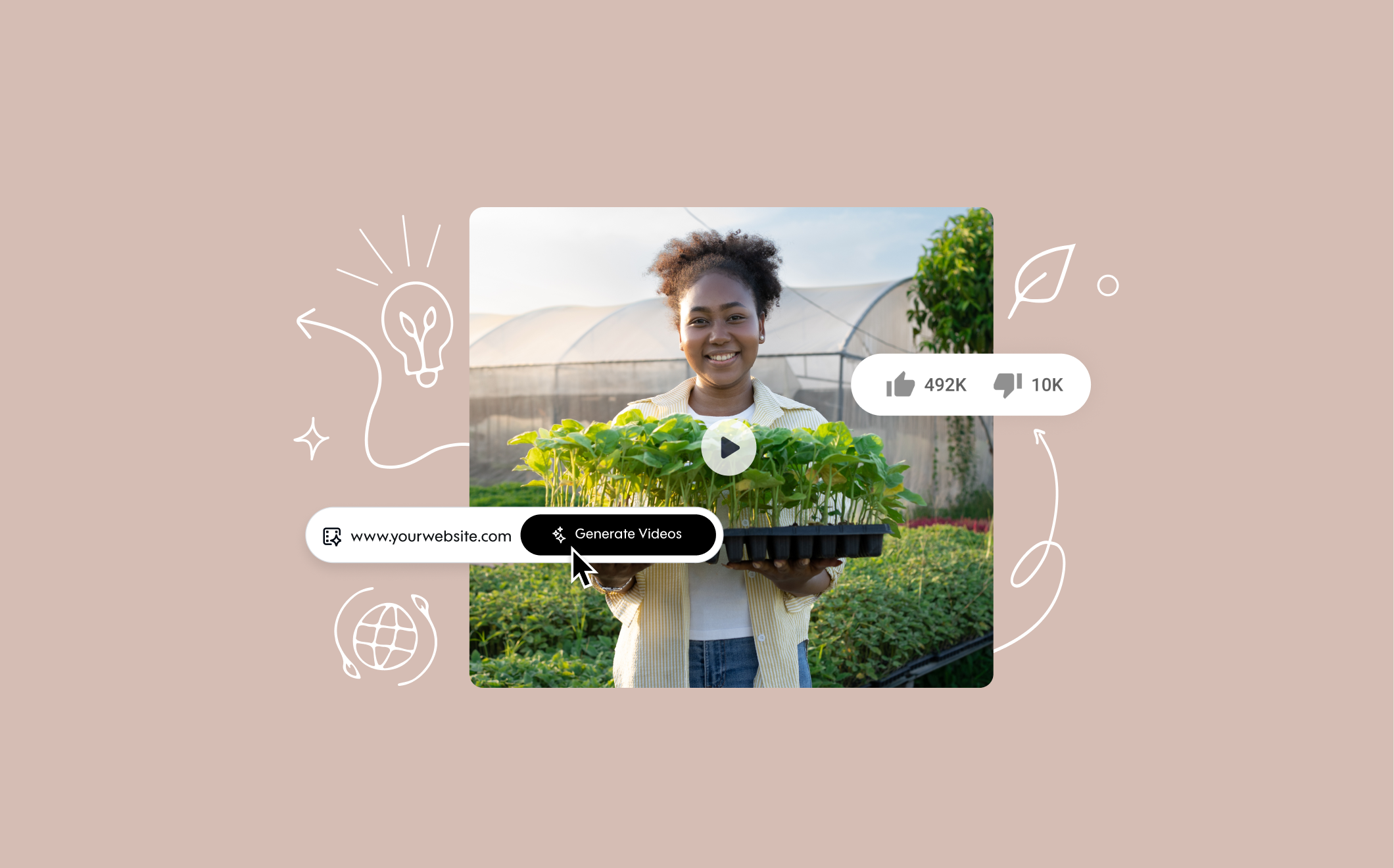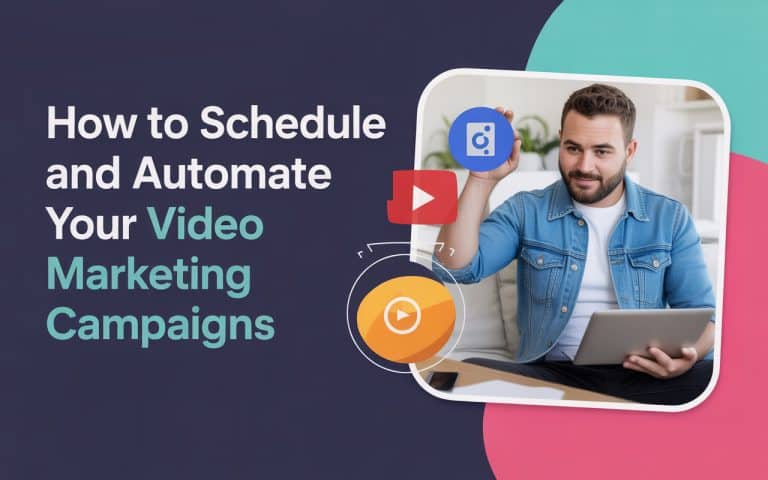
How Small Businesses Can Stay Competitive by Going Green

Sustainability is no longer a “nice-to-have” for small businesses—it’s a business imperative. Consumers, employees, and even investors are increasingly drawn to companies that prioritize environmental responsibility. From reducing waste to conserving energy, sustainability is shaping the future of business practices, and small businesses that embrace these changes are poised for long-term success.
Because the good news is that sustainable practices are a win-win: good for the planet and good for business, too. With the help of emerging technologies like AI, small businesses can become more efficient, cut costs, and build a brand that resonates with eco-conscious consumers. In this blog, we’ll explore why sustainability matters, how AI can support sustainable practices, and actionable steps small businesses can take today.
The Case for Sustainability in Business Practices
Sustainability isn’t just about “doing the right thing.” It’s about aligning business practices with evolving consumer expectations and employee demands—and the numbers don’t lie. Let’s take a look at why it’s worth investing in making your business more sustainable.
Consumer Trust
In a world where shoppers are increasingly mindful of the brands they support, sustainability has become a must for small businesses. Today’s consumers aren’t just looking for good products—they’re looking for responsible brands that align with their values. If your business isn’t prioritizing sustainability, you risk losing out to competitors who do.
Sustainable practices have grown to be essential for earning and maintaining customer trust. Customers want to know the companies they support are doing their part to reduce environmental impact. By adopting eco-friendly initiatives like using recyclable packaging, sourcing ethical materials, or reducing waste, small businesses can position themselves as brands that customers can feel good about supporting.
Here’s why sustainability should be on every small business’s radar:
- Shifting Consumer Expectations: 78% of consumers say sustainability is a key factor in their buying decisions. This means the greener your business appears, the more attractive you are to potential customers.
- Customer Loyalty: 87% of consumers are willing to switch to a brand that supports a cause they care about, while 76% will avoid brands they perceive as irresponsible. Small businesses that actively highlight their sustainability efforts can build strong, lasting customer relationships.
- Willingness to Pay More: Consumers are putting their money where their values are. 66% of shoppers are willing to pay a premium for eco-friendly brands, making sustainability a potential revenue booster for small businesses.
Imagine you run a small boutique selling handmade candles. If you switch to eco-friendly packaging made from recycled materials and clearly communicate this effort on your website, you’re sending a message to your customers that you prioritize sustainability. This action could lead to an increase in repeat buyers, higher brand trust, and a stronger emotional connection with your audience.
The bottom line: Sustainability isn’t just about saving the planet—it’s about saving your business from irrelevance. By showcasing eco-friendly initiatives, you build trust, foster loyalty, and give consumers a compelling reason to choose you over competitors.
Employee Engagement
Today’s workforce is looking for more than just a paycheck—they want purpose. As environmental responsibility becomes a top priority for employees, businesses that prioritize sustainability gain a competitive edge in both recruitment and retention. Employees want to be part of companies that stand for something bigger, and sustainability is a cause that resonates deeply.
Here’s why employee engagement is tied to sustainability:
- Stronger Employee Loyalty: 67% of employees consider it important to work for an environmentally friendly company. Businesses that align with these values see lower turnover and stronger retention.
- Higher Morale and Motivation: Companies that prioritize sustainability in their HR policies report a 55% increase in employee morale and a 43% boost in employee loyalty. When employees feel connected to a cause, they’re more engaged, productive, and committed to the company’s mission.
- Recruitment Edge: Talented job seekers are drawn to companies that prioritize sustainability. Highlighting your eco-friendly initiatives in job listings, company updates, and onboarding materials can attract skilled candidates who share your values.
Imagine you own a boutique café and you introduce an “Eco-Employee Perks Program”. Employees who participate in green initiatives—like carpooling, biking, or bringing reusable containers—can earn points toward free meals, gift cards, or extra time off. This not only reduces your business’s carbon footprint but also increases employee engagement and loyalty. Plus, when potential hires see your café’s commitment to sustainability and employee well-being, it becomes a unique selling point that attracts top talent and fosters long-term retention.
The bottom line: In addition to appealing to customers, sustainability helps empower your team. Engaged employees are more productive, more loyal, and more invested in your business’s long-term success, helping you build a purpose-driven workplace that inspires your team and strengthens your brand.
How AI Can Help Small Businesses Be More Sustainable
Going green doesn’t have to cost an arm and a leg. AI is a game-changer for small businesses looking to embrace sustainability. From optimizing operations to personalizing marketing, AI tools make it easier to adopt sustainable practices without increasing operational costs. Let’s look at the different areas you can apply AI to make your business more sustainable.
AI-Driven Efficiency
AI-driven efficiency focuses on optimizing operations, reducing waste, and making supply chains more sustainable. By using AI-powered tools, small and medium-sized businesses can streamline production, minimize overstock, and select eco-friendly suppliers. This approach allows you to reduce your environmental footprint while also lowering operational costs.
The key benefit of AI-driven efficiency is the ability to do more with less. By reducing waste and optimizing the supply chain, you can:
- Lower production costs
- Cut down on excess inventory
- Operate more sustainably
Partnering with sustainable suppliers can also enhance a business’s environmental credentials, which can attract eco-conscious customers and business partners. Efficient supply chains also result in faster delivery times, fewer delays, and greater overall reliability. These benefits help you meet sustainability goals while boosting customer satisfaction.
How does it work? AI-powered predictive analytics analyze historical data and customer demand trends to forecast future sales. This enables businesses to avoid overproduction and reduce the risk of waste. AI tools also assess supplier options and recommend more sustainable vendors, helping you source eco-friendly materials. Additionally, AI can optimize shipping and logistics, minimizing carbon emissions by selecting efficient delivery routes and transportation methods.
Suggested Tools:
- Project44: Provides real-time supply chain visibility and predictive analytics to avoid delays and reduce waste.
- Anvyl: Helps small businesses source sustainable suppliers and track shipments, supporting sustainable procurement goals.
Energy Savings
AI-driven energy-saving tools monitor, track, and reduce energy usage in real time. These tools use machine learning to identify patterns in energy consumption, detect inefficiencies, and suggest corrective actions. Businesses can lower their carbon footprint, reduce electricity bills, and operate more sustainably.
Reducing energy consumption is one of the most immediate and measurable ways to become more sustainable. For small businesses, this translates into:
- Lower utility bills
- Reduced operational costs
- A greener public image
With AI handling energy usage, you can focus on core operations while ensuring you meet sustainability goals. Reduced energy use also contributes to higher sustainability scores, which can open new opportunities for business partnerships and supplier contracts.
How does it work? AI-based energy systems track and analyze real-time data on electricity consumption, allowing businesses to see which equipment, devices, or processes use the most energy. These systems provide actionable insights, such as when to turn off idle equipment or adjust temperature controls. Predictive maintenance capabilities alert you when equipment needs repairs, reducing unnecessary energy waste. AI can also schedule energy usage for non-peak hours, reducing overall demand and lowering utility bills.
Suggested Tools:
- Sense: Tracks and analyzes energy usage in real time, enabling smarter energy decisions.
- GridPoint: AI-based energy management system that optimizes energy usage for multiple business locations.
Sustainable Design
AI-powered sustainable design tools help small businesses create products and production processes that minimize waste and reduce environmental impact. From product development to packaging design, these tools ensure that every step of production is as eco-friendly as possible.
By adopting AI for sustainable design, small businesses can:
- Reduce production costs
- Cut down on waste
- Position themselves as eco-friendly brands
This approach strengthens customer trust and aligns with growing consumer demand for sustainable products. Creating products with less waste also enhances operational efficiency and lowers material costs, allowing you to achieve greater profitability while supporting environmental goals.
How does it work? AI design tools generate multiple versions of a product design, simulating various production scenarios to determine which option is the most resource-efficient. The system identifies designs that require fewer materials, minimize waste, and reduce overall production costs. These tools can also recommend eco-friendly materials that meet sustainability standards. For example, AI can suggest recyclable or biodegradable materials for packaging, helping small businesses reduce waste in their supply chain.
Suggested Tools:
- Autodesk Generative Design: AI-driven design software that identifies optimal product designs with minimal waste.
- Onshape: Cloud-based CAD software with AI-driven simulations to improve production efficiency and reduce material waste.
Targeted Marketing
Targeted marketing uses AI to create personalized marketing campaigns that highlight a business’s sustainability initiatives. AI helps small businesses craft messages that resonate with eco-conscious consumers, driving brand loyalty and increasing sales.
Sustainability is a key driver of consumer purchasing decisions. Targeted marketing allows small businesses to emphasize their sustainability efforts in their advertising and content, making their green initiatives more visible. Personalized messaging boosts brand reputation, builds trust, and drives higher engagement from eco-conscious customers.
How does it work? AI tools use machine learning to analyze customer behavior and segment audiences based on their preferences. You can identify which customers are more likely to care about sustainability and target them with relevant marketing messages. AI tools also create personalized content, such as social media ads, email campaigns, and product highlights, that showcase the company’s green initiatives. By using machine learning to optimize ad placement and timing, you can ensure your sustainability messaging reaches the right audience at the right time.
Suggested Tools:
- PromoAI: AI-driven platform for creating social media ads and video content that highlight sustainability efforts.
- ActiveCampaign: Offers advanced segmentation, personalized email marketing, and customer journey automation, all at an affordable price point.
Actionable Steps for Small Businesses to Get Started
You don’t need to overhaul your entire business to become more sustainable. Start with small, impactful changes that drive both environmental and business benefits. Here’s how:
- Audit Your Operations: Identify where your business can reduce waste, energy usage, and material inefficiencies.
- Set Clear Sustainability Goals: Create specific, measurable goals like reducing energy usage by 20% or switching to recyclable packaging.
- Leverage AI Tools: Use AI-powered tools like GridPoint for energy tracking, ClearMetal for supply chain optimization, and Autodesk Generative Design for eco-friendly product design.
- Switch to Sustainable Materials: Source recycled, reusable, or biodegradable materials for packaging, production, or daily operations.
- Reduce Energy Consumption: Use smart energy systems to cut utility costs and lower your carbon footprint.
- Tell Your Sustainability Story: Highlight your sustainability efforts on your website, social media, and marketing materials to attract eco-conscious customers.
- Engage Employees: Involve your team in sustainability initiatives, from waste reduction programs to green commuting incentives.
- Monitor and Report Progress: Track your sustainability efforts and share progress updates with customers, employees, and investors.
Embrace Sustainability for Lasting Success
Sustainability isn’t just a buzzword—it’s a real competitive advantage. For small businesses, adopting eco-friendly practices helps you meet consumer expectations, enhance employee engagement, and boost profitability. From reducing energy usage to optimizing supply chains, every sustainable choice you make strengthens your brand’s reputation and business performance.
With AI-powered tools at your fingertips, it’s never been easier to integrate sustainability into your operations. Whether it’s using AI for energy efficiency, sustainable design, or targeted marketing, small changes can have a big impact. By taking action now, you position your business as a leader in the growing eco-conscious market.
Ready to showcase your commitment to sustainability? With PromoAI, you can create marketing campaigns that spotlight your green initiatives, engage eco-conscious consumers, and strengthen brand loyalty. Easily design video ads, social media posts, and content that tell your sustainability story with just a few clicks.
Get started with PromoAI today and put your sustainable business front and center.
Meet PromoAI
Generate a month worth of video content for your business in just one click!
About the author
Daisy Rogozinsky
Daisy Rogozinsky loves to use the written word to educate, entertain, and tell stories. If she's not writing content, she's writing poetry, music, and screenplays.


